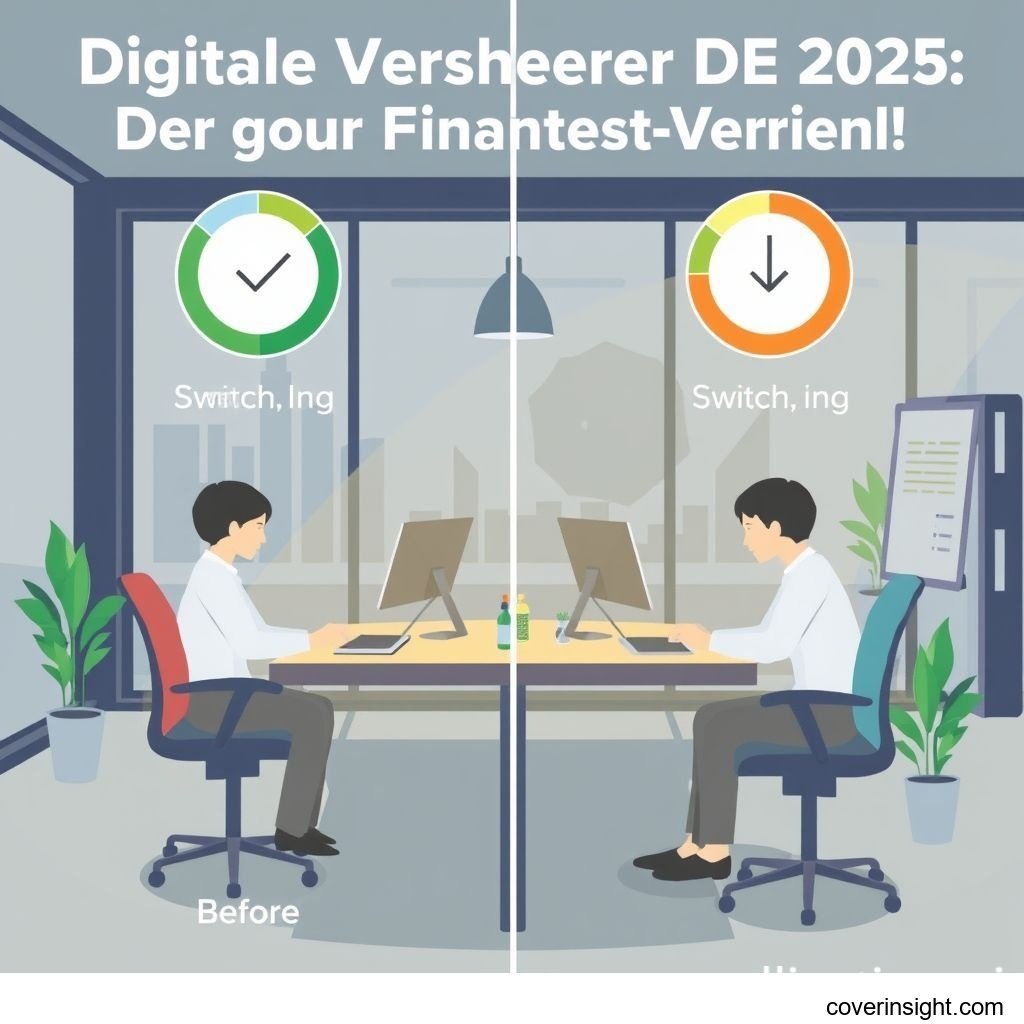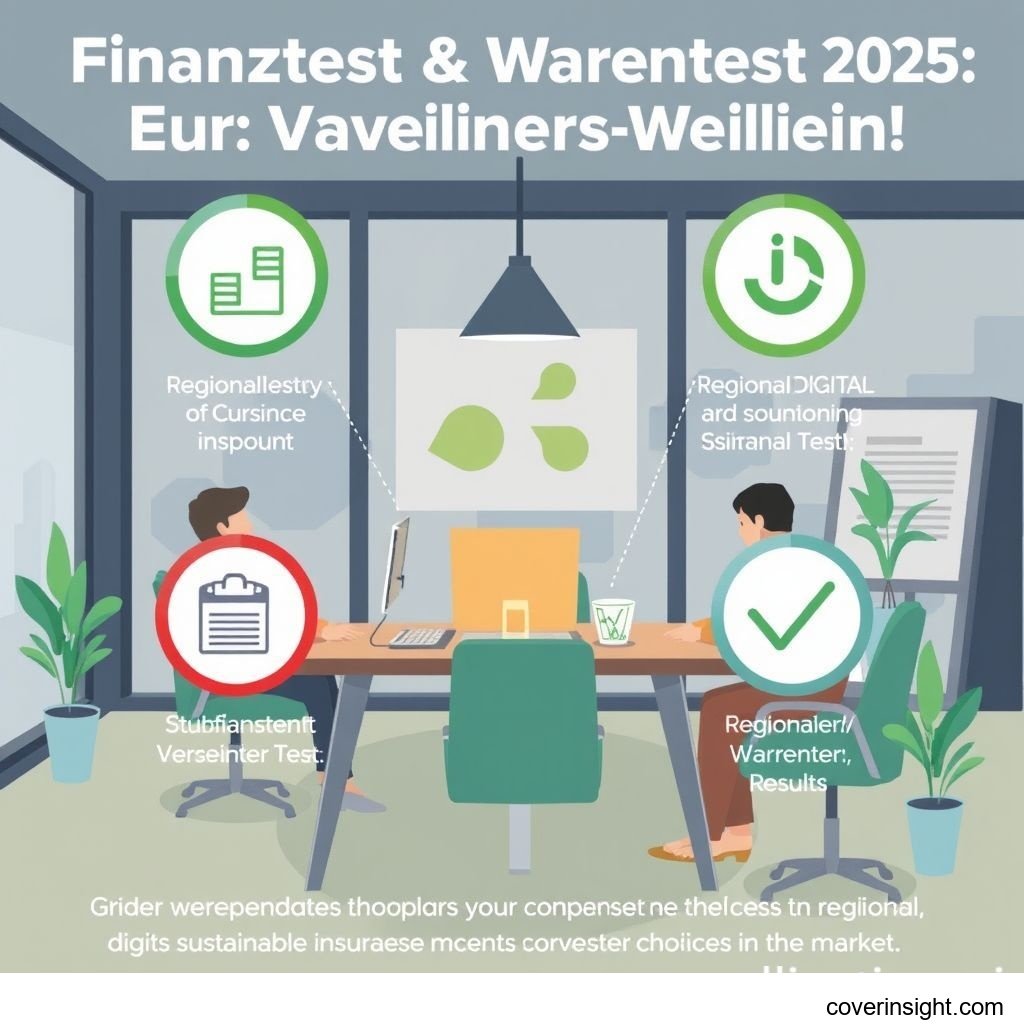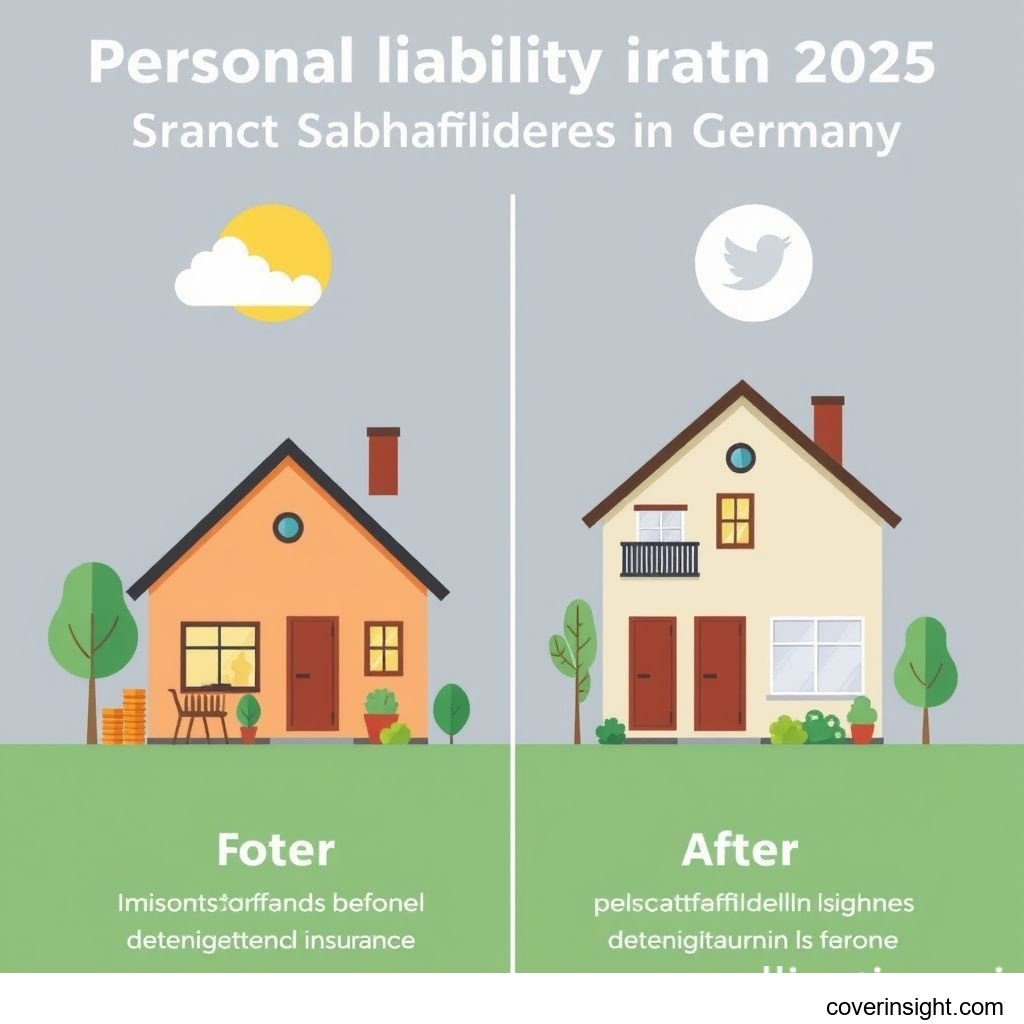Introduction
In the dynamic landscape of Germany's insurance market, understanding who truly stands out can feel like searching for a needle in a haystack. This is particularly true when it comes to the Regionaler Versicherer Tests in DE (2025), a crucial benchmark for consumers seeking reliable, forward-thinking coverage. These tests are more than just a ranking; they provide invaluable context, highlighting insurers that not only offer competitive rates but also align with modern values of digitalization and sustainability. For many, choosing the right insurer isn't just about protection; it's about making a conscious decision that reflects personal values, ensuring peace of mind for their future and the planet's.
Coverage Details
Navigating the intricacies of insurance policies can be daunting. Understanding what's genuinely covered and what's not is the first step towards an informed decision, especially when comparing digital and sustainable options highlighted in the Regionaler Versicherer Tests in DE (2025).
What’s Included
Modern digital and sustainable insurers in Germany often go beyond traditional offerings. For instance, a leading digital insurer might provide a comprehensive household insurance policy that includes not just fire and water damage, but also cyber damage protection, a growing concern in our digital age. Sustainable insurers, on the other hand, might offer special benefits for eco-friendly homes, such as reduced premiums for houses with solar panels or energy-efficient heating systems. Many policies now also feature elements like "fair value" clauses for damages, ensuring that you're compensated adequately even for older items. Furthermore, some cutting-edge digital providers facilitate claims submissions entirely via app, streamlining a process that historically involved mountains of paperwork. For a deeper dive into available coverages, explore general [Insurance Resources Global] and specific insights on [DE Insurance Home].
Common Exclusions
While policies are designed to protect, it's equally important to be aware of what they typically don't cover. Common exclusions across many German insurance policies include damages caused by gross negligence, acts of war, or pre-existing conditions not declared at the time of policy inception. For sustainable policies, specific types of "acts of God" (Höhere Gewalt) might be defined differently, or there might be limitations regarding damages from extreme weather events if the property's construction doesn't meet certain resilience standards. For example, some insurers might exclude damage from flooding if the property is located in a high-risk flood zone and no specific flood insurance (Elementarschadenversicherung) was purchased. As a rule of thumb, always review the fine print – the "Kleingedruckte" – to avoid any unpleasant surprises down the line.
Cost Analysis
The cost of insurance is, understandably, a major factor for most consumers. However, when it comes to digital and sustainable insurers, the premium isn't just a number; it reflects the value, convenience, and ethical considerations embedded in the policy.
Price Factors
Several elements influence the premiums for digital and sustainable insurance in Germany. For digital insurers, lower administrative overheads often translate into more competitive pricing. They might also leverage telematics data for car insurance, rewarding safer drivers with lower rates. For sustainable insurers, factors like a property's energy efficiency, the use of renewable energy sources, or even your daily commuting habits (e.g., using public transport instead of a car) can play a role. The location of your insured asset (e.g., your home in a city like Munich versus a rural village in Bavaria), your claims history, and the chosen deductible ("Selbstbehalt") also significantly impact the final premium. According to a 2023 report by the GDV - German Insurance Association, digitalization has led to a noticeable increase in transparency and competitive pressure, ultimately benefiting consumers through more tailored and often more affordable options.
Saving Tips
Want to save a few Euros on your premium without compromising on coverage? Here are some savvy tips:
-
Bundle Policies: Many insurers offer discounts if you purchase multiple policies (e.g., home and liability) from them.
-
Increase Deductible: Opting for a higher deductible can significantly lower your annual premium. Just ensure you can comfortably cover that amount should a claim arise.
-
Annual Payments: Paying your premium annually instead of monthly or quarterly often results in a small discount.
-
Utilize Digital Features: Some digital insurers offer discounts for signing up for paperless communication or managing your policy exclusively through their app.
-
Embrace Sustainability: If your insurer offers incentives for eco-friendly practices, take advantage of them. For example, installing a smart home system or upgrading to energy-efficient appliances might lead to reduced premiums.
-
Compare Regularly: The market is always evolving. Use online comparison portals to regularly check if better deals are available, perhaps through one of the top digital insurers identified in the Regionaler Versicherer Tests in DE (2025).
FAQs
How much does Regionaler Versicherer Tests cost?
The Regionaler Versicherer Tests in DE (2025) themselves are not a product consumers purchase. They are independent evaluations conducted by various German consumer organizations and financial magazines (e.g., Stiftung Warentest, Focus Money). The results are often published in magazines or online, usually free or behind a minor paywall if it's part of a premium content subscription.
What affects premiums?
Premiums are influenced by a multitude of factors, including the type of insurance, the scope of coverage, the sum insured, your individual risk profile (e.g., age, location, claims history), and any chosen deductibles. For digital and sustainable insurers, additional factors like digital engagement and commitment to environmental practices can also play a role.
Is it mandatory?
While not all insurance types are mandatory in Germany, some are highly recommended or legally required in specific contexts. For example, health insurance is mandatory for all residents. Car liability insurance ("KFZ-Haftpflichtversicherung") is also legally required if you own and operate a vehicle. Other policies, like household contents insurance or private liability insurance, while not mandatory, are widely considered essential for financial protection against significant risks.
How to choose?
Choosing the right insurer involves evaluating your personal needs, budget, and values. Start by assessing what you need to protect, then compare offers from different providers, paying close attention to coverage details, exclusions, customer service reviews, and their digital capabilities and sustainability credentials. The results of the Regionaler Versicherer Tests in DE (2025) can be an excellent starting point for narrowing down your options. Don't be afraid to ask for quotes and clarify any uncertainties. Checking with a trusted regulatory body like BaFin - Federal Financial Supervisory Authority can also offer peace of mind regarding an insurer's reliability.
Consequences of no coverage?
The consequences of not having adequate insurance coverage can be severe, ranging from minor financial inconveniences to complete financial ruin. Without mandatory health insurance, you would be personally liable for all medical costs. Lacking car liability insurance would mean you're on the hook for any damages or injuries you cause in an accident. For non-mandatory but crucial policies like private liability, a small mistake could lead to millions in damages, leaving you financially crippled. It’s truly a situation where "Vorsicht ist besser als Nachsicht" (prevention is better than cure).
Author Insight & Experience:
Based on my experience living in Germany and observing its evolving insurance market, there's a tangible shift happening. What was once a very traditional, often paper-heavy industry is rapidly embracing digitalization, and more importantly, sustainability. As someone who's had to navigate the "Versicherungsdschungel" (insurance jungle) myself, I've seen firsthand how digital platforms have simplified processes, making it easier to compare and manage policies. However, the true game-changer is the integration of sustainable practices. It's no longer just about covering risks; it's about investing in companies that align with a greener future. The Regionaler Versicherer Tests in DE (2025) will undoubtedly highlight that crucial balance between innovation, cost-effectiveness, and ethical responsibility, proving that you can protect your assets while also supporting a better world.








Comments